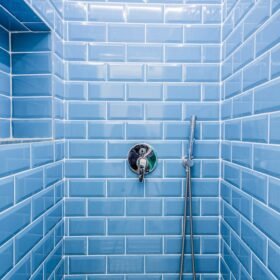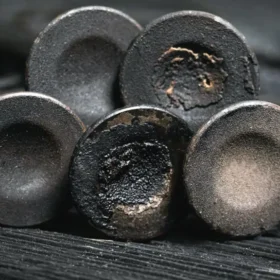Introduction
Cleaning lifters without removing them can be challenging, as lifters are typically located deep within the engine and require disassembly to access. However, there are a few methods you can try to clean lifters without completely removing them. Please note that these methods are not guaranteed to work in all cases and may not be suitable for all engine types. It’s always recommended to consult a professional mechanic or refer to your vehicle’s manufacturer guidelines for specific instructions.
Here are a couple of options to consider: (clean lifters)
Engine Flush:
An engine flush can help remove built-up sludge and deposits from the lifters. Purchase an engine flush product that is compatible with your engine type. Follow the instructions on the product and add it to the engine oil. Then, let the engine idle for a specific duration as directed by the product. Afterward, perform an oil change to remove the flushed-out contaminants.
Fuel Additives:
Certain fuel additives claim to clean lifters by removing deposits and improving fuel system performance. Look for fuel additives that are specifically designed to clean lifters or improve engine performance. Follow the instructions on the product for the recommended dosage and usage. Add the fuel additive to your gas tank as instructed, and drive the vehicle to allow the additive to circulate through the engine.
Keep in mind that these methods may only provide temporary relief or partial cleaning. If the lifters are severely contaminated or experiencing issues, it’s best to consult a professional mechanic who can assess the situation and determine if a more comprehensive cleaning or repair is required.
It’s important to prioritize regular engine maintenance, such as using high-quality engine oil and following the recommended service intervals, to prevent excessive buildup and maintain the health of your engine’s lifters.
Oil Additives:
There are oil additives available that claim to clean lifters and reduce varnish and sludge buildup. Look for additives specifically designed for lifter cleaning. Follow the instructions on the product to add it to your engine oil. The additive will work as you drive, allowing it to circulate through the engine and clean the lifters over time. It’s important to note that not all oil additives are effective, so it’s advisable to choose a reputable product and follow the manufacturer’s instructions.
Gentle Solvent Soak:
This method requires caution and should only be attempted if you have a good understanding of your engine’s internal components. It involves gently soaking the lifters in a solvent to dissolve any deposits. Start by removing the valve covers to gain access to the lifters. Place the lifters in a container filled with a gentle solvent, such as mineral spirits or engine cleaner, and let them soak for a specified period mentioned in the solvent instructions. After the soak, thoroughly rinse the lifters with clean solvent and allow them to air dry. Reinstall the lifters and replace the valve covers.
Ultrasonic Cleaning:
Ultrasonic cleaning can be effective in removing deposits from lifters. This method requires specialized equipment that uses high-frequency sound waves to create agitation in a cleaning solution. It is usually performed by professional mechanics or specialized cleaning services. The lifters are placed in the ultrasonic cleaning machine, where the vibrations help dislodge and remove deposits. This method ensures a thorough cleaning, but it may not be practical for everyone due to the need for specialized equipment.
Conclusion
It’s important to note that if your lifters are severely damaged or experiencing significant issues, cleaning alone may not be sufficient, and replacement or repair may be necessary. Consulting a professional mechanic who can assess the condition of your lifters and provide appropriate advice is recommended. clean lifters
Always prioritize regular engine maintenance, including following manufacturer guidelines and using high-quality oil, to minimize deposits and ensure optimal engine performance.
Q1: How often should I clean the lifters?
A1: The frequency of cleaning lifters without removing them can vary depending on factors such as your driving conditions, engine condition, and the type of oil you use. It’s generally recommended to follow the manufacturer’s guidelines for oil change intervals and maintenance. Regular oil changes with high-quality oil can help prevent excessive buildup and minimize the need for additional cleaning.
Q2: Can cleaning lifters without removal fix all issues?
A2: Cleaning lifters without removal can help address certain issues caused by deposits and sludge buildup. However, it may not resolve all issues related to worn or damaged lifters. If you’re experiencing persistent problems, it’s advisable to consult a professional mechanic for a thorough diagnosis and appropriate solutions.
Q3: Will cleaning lifters improve engine performance?
A3: If the lifters are partially blocked or restricted by deposits, cleaning them may help restore proper functioning and improve engine performance. However, it’s important to note that other factors can also affect engine performance, and cleaning lifters alone may not be the sole solution to all performance-related issues.
Q4: Can I clean lifters without removing the valve covers?
A4: Cleaning lifters without removing the valve covers is limited in its effectiveness. The valve covers provide access to the lifters, allowing for a more thorough cleaning. However, some methods, such as using fuel or oil additives, can be attempted without removing the valve covers.
Q5: What are the signs that my lifters need cleaning?
A5: Signs that your lifters may need cleaning include ticking or tapping noises from the engine, decreased engine performance, or inconsistent engine operation. However, it’s important to consider that these symptoms can have various causes, and a professional diagnosis is recommended to determine the specific issue.
Remember, while these answers address common questions, every situation may be unique. It’s best to consult a professional mechanic for personalized advice and solutions tailored to your specific engine and its needs







